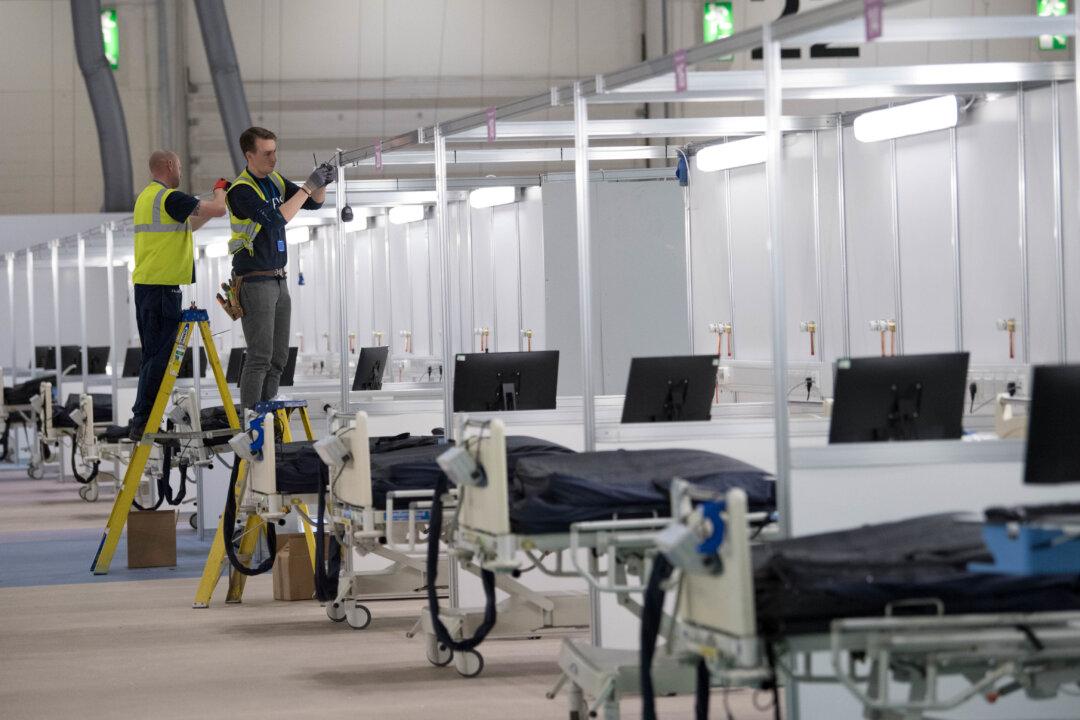A field hospital in London will be on standby in case the National Health Service (NHS) is overwhelmed, UK’s Health Secretary Matt Hancock said on Thursday, as London reportedly risks running out of beds within two weeks.
Projections leaked to the Health Service Journal suggested that even if the number of COVID-19 patients increased at the lowest rate considered likely, London hospitals would be short of nearly 2,000 acute and intensive beds by Jan. 19.





